SOLVING PROBLEMS ON ANGLE RELATIONSHIPS
Subscribe to our ▶️ YouTube channel 🔴 for the latest videos, updates, and tips.
Problem 1 :
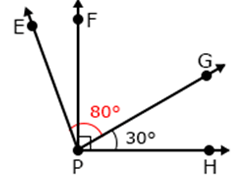
m∠EPG = 80°; m∠GPH = 30°
If ∠FPG and ∠GPH are complementary angles, then what is the measure of ∠FPG?
Solution :
m∠FPH = 90°
m∠FPG + m∠GPH = 90
m∠FPG + 30 = 90
m∠FPG = 90 - 30
m∠FPG = 60°
So, the required angle measure is 60°.
Problem 2 :
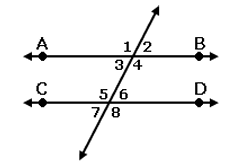
Lines AB and CD are parallel. If ∠1 measures (3x + 13)°, and ∠4 measures 151°, what is the value of x?
A. x = -4 B. x = 74 C. x = 46 D. x = 5
Solution :
∠1 = ∠4 (vertically opposite angles)
3x + 13 = 151
3x = 151 - 13
3x = 138
x = 138/3
x = 46°
So, the value of x is 46°.
Problem 3 :
Angle DOE and angle EOF are adjacent angles. If m∠DOF = 66°, m∠DOE = x, and m∠EOF = 27°, which equation could be used to solve for x?
A. x - 66° + 27° = 90° B. x - 27° = 66°
C. x + 27° = 66° D. x + 66° + 27° = 180°
Solution :
m∠DOF = 66°, m∠DOE = x, and m∠EOF = 27°
DOE and angle EOF are adjacent angles
m∠DOE + m∠EOF = m∠DOF
x + 27 = 66
So, option C is correct.
Problem 4 :
If ∠ROQ and ∠ROS are complementary angles, then what is the value of x and m∠ROS?
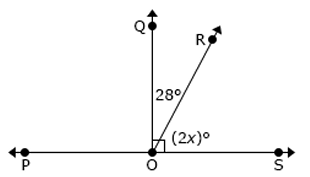
Solution :
∠QOS = ∠QOR + ∠ROS
90 = 28 + 2x
28 + 2x = 90
2x = 90 - 28
2x = 62
x = 62/2
x = 31
∠ROS = 2x
= 2(31)
∠ROS = 62
Problem 5 :
What is the measure of ∠GEF?
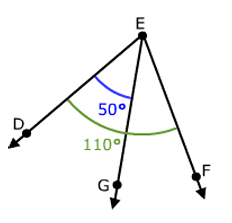
Solution :
∠DEF = 110
∠DEG + ∠GEF = 110
50 + ∠GEF = 110
∠GEF = 110 - 50
∠GEF = 60
Problem 6 :
Lines AB and CD are parallel. If ∠1 measures (2x + 15)°, and ∠4 measures 111°, what is the value of x?
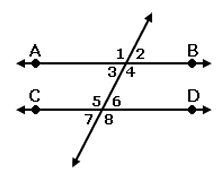
Solution :
∠1 = ∠4 (Vertically opposite angles)
2x + 15 = 111
2x = 111 - 15
2x = 96
x = 96/2
x = 48
Problem 7 :
Lines AB and CD are perpendicular to each other. If ∠1 measures (4x + 3)°, and ∠2 measures 19°, what is the value of x?
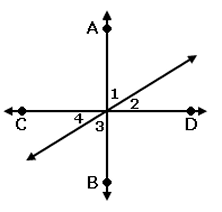
Solution :
Here ∠1 and ∠2 add upto 90 degree
∠1 + ∠2 = 90
4x + 3 + 19 = 90
4x + 22 = 90
4x = 90 - 22
4x = 68
x = 68/4
x = 17
Problem 8 :
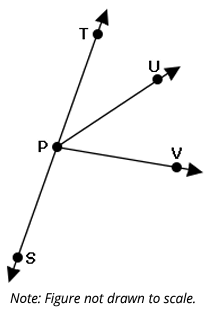
In this picture, m∠TPU = 36° and m∠UPS = 5x + 10. If ∠TPU and ∠UPS are supplementary angles, then what is the value of x?
A. 8.8 B. 134 C. 26.8 D. 30.8
Solution :
m∠TPU + m∠TPU = 180
36° + 5x + 4 = 180
5x + 40 = 180
5x = 180 - 40
5x = 140
x = 140/5
x = 28
Subscribe to our ▶️ YouTube channel 🔴 for the latest videos, updates, and tips.
Recent Articles
-
Finding Range of Values Inequality Problems
May 21, 24 08:51 PM
Finding Range of Values Inequality Problems -
Solving Two Step Inequality Word Problems
May 21, 24 08:51 AM
Solving Two Step Inequality Word Problems -
Exponential Function Context and Data Modeling
May 20, 24 10:45 PM
Exponential Function Context and Data Modeling